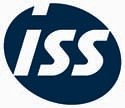
ISS A/S Buyback: Capital Strategy in a Dynamic Global Economy
ISS A/S's significant share buyback program reflects robust financial health and a strategic approach to capital. We unpack its wider implications for private sector investment and economic stability.
COPENHAGEN, DENMARK – November 17, 2025
ISS A/S, a global leader in workplace experience and facility management, continues to execute a substantial share buyback program. While seemingly a routine financial maneuver, this DKK 3,000 million initiative offers a compelling case study in strategic capital allocation within large, mature private sector enterprises, providing insights into broader economic trends that underpin national economic competitiveness and innovation across all sectors, including defense and space technology. For observers of global financial flows and corporate strategy, such programs signal more than just shareholder returns; they reflect a company's confidence, strategic priorities, and the overarching health of the private sector. The consistent execution of this buyback highlights how significant capital is being deployed in established industries, indirectly influencing the wider economic landscape.
Unpacking the Financial Strength Behind the Strategy
The ability to undertake a share buyback of this magnitude stems directly from ISS A/S's robust financial performance. The company reported a Group revenue of DKK 83.8 billion for the full year 2024, slightly surpassing analyst expectations and confirming the DKK 83.7 billion previously indicated. This top-line growth was coupled with significant improvements in profitability, with the operating margin before other items rising to 5.0% in 2024 from 4.3% in 2023.Net income for 2024 saw a substantial 36% increase, reaching DKK 2.63 billion, which translated to an impressive DKK 14.55 in earnings per share (EPS). Crucially, the company generated a healthy free cash flow of DKK 2.0 billion, demonstrating its capacity to fund both operational needs and shareholder initiatives. With a financial leverage of 2.0x at the close of 2024—at the lower end of its target range—ISS A/S exhibits a strong balance sheet. These figures paint a clear picture of a financially sound organization with ample liquidity, providing the foundation for its proactive capital allocation decisions.As of November 14, 2025, ISS A/S has repurchased a total of 11,855,883 shares under the current program, amounting to DKK 2,134,727,781 at an average price of DKK 180.06 per share. The company now holds 10,953,962 treasury shares, representing approximately 6.29% of its total share capital. The program is set to conclude by February 13, 2026. This consistent market activity signals management's unwavering confidence in the company's future prospects and its commitment to enhancing shareholder value.
Capital Allocation: Shareholder Returns Versus Strategic Growth
The share buyback program at ISS A/S is not an isolated event but rather a component of a carefully considered capital allocation strategy. In 2024, the company also engaged in targeted mergers and acquisitions (M&A), including the acquisition of gammaRenax in Switzerland and Grupo BN in Spain, alongside the divestment of ISS France. This demonstrates a dual approach: optimizing the portfolio for strategic growth while simultaneously returning excess capital to shareholders.This dual strategy highlights a critical decision point for many large corporations, including those operating in more technologically advanced or defense-oriented sectors. How much capital should be reinvested in innovation, research and development, and strategic acquisitions that drive future growth, versus how much should be returned to shareholders through dividends or buybacks? For a mature industry like facility management, buybacks can be an effective way to enhance earnings per share and signal financial stability, especially when internal investment opportunities may not yield exceptionally high returns.However, the broader implication for economic competitiveness lies in this balance. While buybacks can boost short-term shareholder metrics, a sustained emphasis on returning capital without sufficient investment in future-proof technologies or market expansion could, in some industries, impede long-term innovation. For sectors like strategic defense and space technology, which demand continuous, high-cost R&D and long-term investment horizons, the private sector's willingness and ability to allocate capital to innovation is paramount. The disciplined approach demonstrated by ISS A/S—balancing M&A for strategic fit with significant buybacks—provides a template for how large entities manage their capital to navigate market dynamics and maintain competitiveness.
Broader Economic Resonance and Future Outlook
The capital allocation decisions made by large, globally operating companies like ISS A/S resonate far beyond their immediate financial statements. They contribute to the overall dynamism and health of the private sector, which in turn forms the bedrock of national economic strength. A robust private sector, characterized by financially sound companies and strategic capital deployment, creates the economic stability and tax base necessary to fund public sector investments, including critical defense and space initiatives.The strong financial performance and strategic buyback by ISS A/S are likely viewed favorably by financial analysts. The company's 2024 revenues exceeding estimates and EPS largely meeting expectations have set a positive tone. Looking ahead, ISS A/S has projected organic growth between 4% and 6% and an operating margin above 5% for 2025, with free cash flow expected to exceed DKK 2.4 billion. These forward-looking statements, combined with the ongoing buyback, paint a picture of a company focused on sustainable growth and shareholder prosperity.In an era where geopolitical realities increasingly intersect with economic strength and technological leadership, understanding how major private sector players manage their capital becomes a vital component of strategic analysis. The ISS A/S buyback, therefore, is not merely a corporate transaction; it is a signal of confidence in a company's future and a reflection of broader trends in capital management that influence the economic landscape upon which all strategic sectors, including defense and space, ultimately depend.
